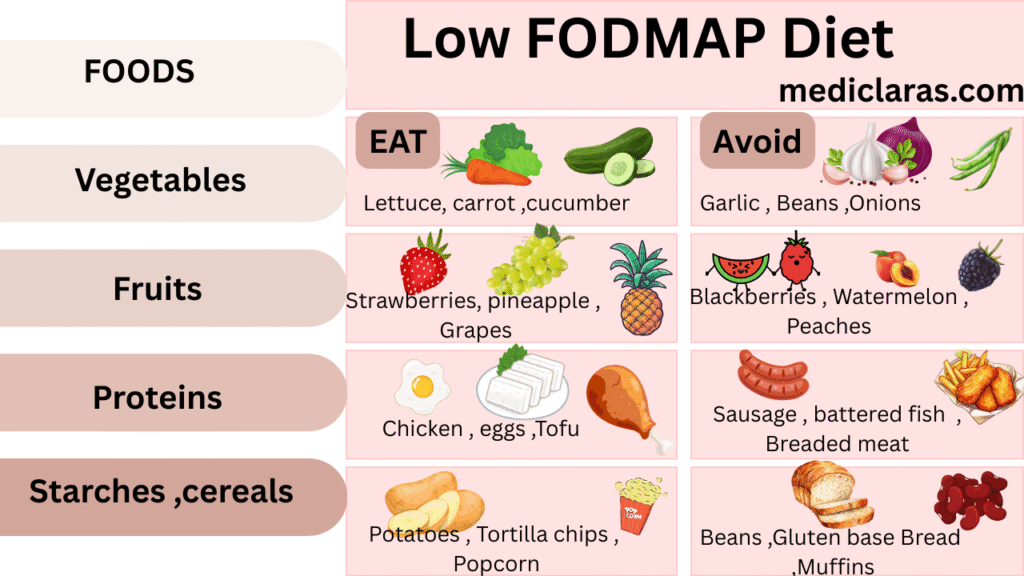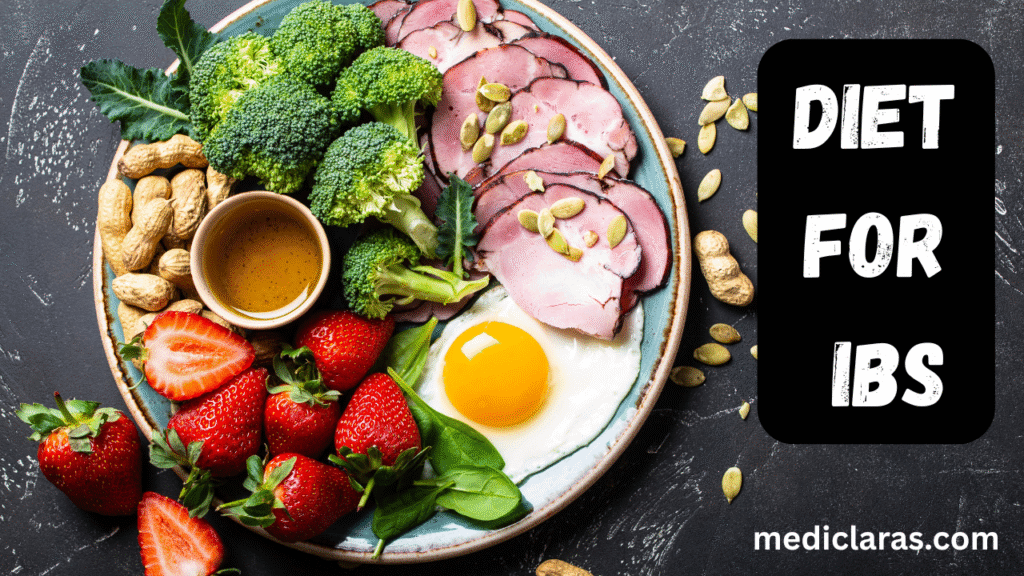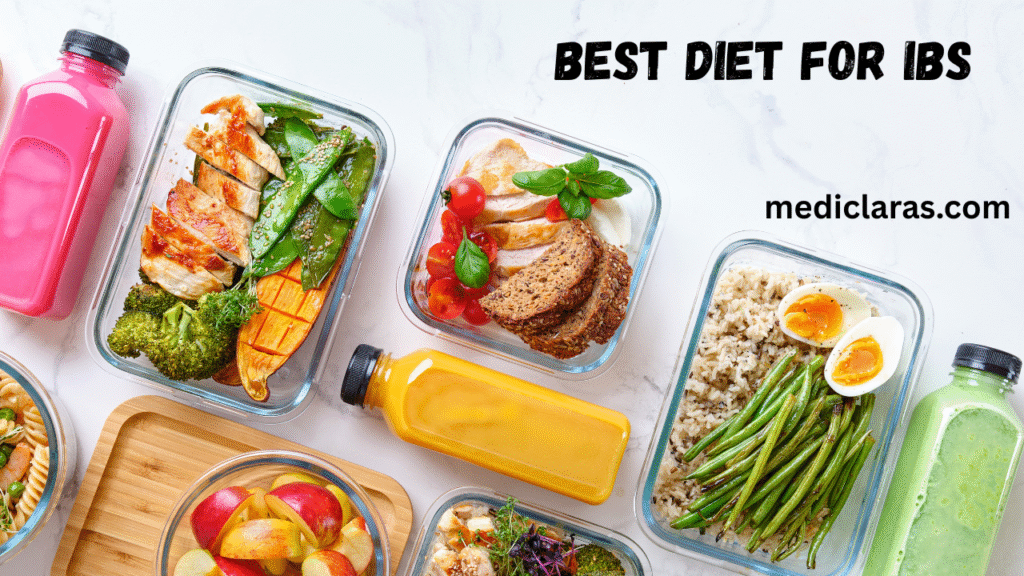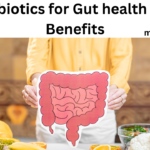Best Diet For IBS, Foods to eat ( foods to avoid) for a healthier gut.
Reducing certain carbohydrates, keeping an eye on how much fiber to eat,
and eating low fat foods are always helpful for managing many symptoms
of irritable bowel disease. Medical treatment is important in managing IBS,
but certain food plants may also be beneficial. Impact about 8 in 10 people
with IBS, find that foods impact their symptoms. In this article ,we learn
about the best diet for IBS ,foods to eat ( foods to avoid) for a healthier gut.
What is IBS?
The Inflammatory condition of the digestive tractor gut may result in debilitating
disease that falls under the term inflammatory bowel disease or syndrome.
This disease can cause intense and sudden symptoms that can include
severe stomach cramps, diarrhoea and more. Even though IBS is primarily
a disease of the gut,it can impact more than your GI tract, and can affect
the physical or mental health .
IBS has two frequently occurring types of disease including ulcerative
colitis and Crohn’s disease.
Symptoms of IBS
Common symptoms of IBS are
Severe abdominal pain and cramping
Bloating
Diarrhea
Best Diet For IBS
Despite the lack of a universal solution, certain eating habits are very
effective. Following are the best diet for IBS:
Managing IBS with low FODMAP approach
This is the best food IBS . FODMAP
is an acronym that stand for :
F –Fermentable
O-Oligosaccharides
D-Disaccharides
M-Monosaccharides
AP-And Polyols
The fermentable carbohydrates are found in these items that can lead to feeling of unease
in the digestive tract or gut of many people .They experience trouble in
digestion and absorption in the gastrointestinal tract,which means they can
pass the intestine without breaking down and fermented in the
colon. This fermentation in the colon can be done by bacteria.
All this can lead to bloating, abdominal pain, diarrhea
and other symptoms associated with IBS because gas is released during
fermentation.
These lead to water being drawn into the gut ,which can also
increase distention ( stomach bloating).
This particular eating pattern is also an elimination diet. An elimination diet
starts by limiting high FODMAP foods,and then assessing whether
symptoms improve .
High FODMAP foods to avoid
● Lactose containing foods like cow’s milk, yogurt ,cheese and ice cream
● Fruits like apple, watermelon,plums,mangoes and pears
● Certain legumes include lentils,kidney beans and chickpea
● Corn sugar syrup
● Synthetic sweeteners
● Cereal ,bread and pasta that contains wheat
● Vegetables include asparagus ,onion, broccoli and brussels
It is important to note that it is not entirely eliminating foods in these
categories.

Alternative Low FODMAPs to eat
The best diet for IBS is following:
● free from lactose milk or non dairy alternatives like milk of almond or milk
of rice
● Fruits you can eat are strawberries , oranges,blueberries,and grapes
● Skinless chicken breast
● Fish types like cod or halibut
● Vegetables you can eat are green beans,pumpkins,carrots, zucchini
● Hard cheese and tofu
● Rice and oats
Consult a physician and dietitian for directions before
starting a low FODMAP dietary approach ,to prevent nutritional
deficiencies.
When to follow a low FODMAP diet
Two phases are structured to follow a low FODMAP dietary approach :
● Phase 1. A limited period of typically 3 to 6 weeks in which you limit
foods high in FODMAPs.
● Phase 2. You can re-establish these foods into your diet
at a time,and assess tolerance of each.
It is recommended that this is done under the supervision of a qualified
trained nutritionist. If he or she is not available they suggest consulting with medical practitioner
to provide you with quality materials to assist you in doing this in a
medically responsible manner.
Fiber rich diet
As carbohydrates are present in dietary fibres, it may provide multiple
benefits for people with IBS. This diet is helpful in IBS associated
constipation. Studies have found that fibre absorbs water in the gut ,adding
bulk and softening stool. Increasing fibre may help:
Regulation of bowel movements
Alleviate diarrhea symptoms
Decrease intestinal gas
Decrease bloating and abdominal pain
It is a essential to find the difference between the two kinds of fibers:
● Soluble fibers: These fibers breakdown in the intestine, changing
into a gel Iike substance that can aid in your digestion. These include apple, citrus fruit and beans.
● Insoluble fibers: These fibers demonstrate that they pass
Undigested through the intestine and increase the volume of bowel movements. They also
help in Speeding up digestion. Insoluble fibres present in foods such
as nuts ,seeds, brown rice or grains.
If you are having trouble eating more fiber, it might be good to consult with
the registered trained dietitian or doctor about adding more high fibre foods
or fibre supplements to your diet. Research indicates that psyllium fiber
supplements_ as a fiber that has low fermentation rate_ are especially
helpful for IBS symptoms.
Free From Gluten Diet
Gluten is present in grain foods like bread ,wheat and biscuits etc. These foods are
dangerous for the intestine lining of those
individuals who have illnesses related to gluten like celiac disease or non
celiac gluten sensitivity. A diet without gluten is preferred to individuals
who have sensitivity with gluten.
The individuals who is following this diet plan for 18 months
continued to show symptom improvement. Some studies are also indicate
that there is not much research to support a gluten
free diet for IBS.
You might have to remove gluten from your diet for a full week and monitor your
symptoms and then add foods in to see if the symptoms return.
High Gluten Foods to avoid
Some which difficultly contain gluten include:
● Cereals
● Wheat or oats
● Dairy items like ice cream or yogurt
● Processed cheese
● Pasta or some sauces
● Beer
● Processed soups
Gluten free foods to eat
Healthy food stores and most grocery stores carry gluten free products. It is
worth remembering that for individuals with celiac disorder a food without gluten also essential
and also helpful for disorders related
to gluten. These foods include:
● Fresh fruits and vegetables
● Beans or legumes
● Gluten free label oats
● Gluten free label grains like rice
● Dairy items without aditives
● Seeds and nuts
For known food sensitivities or intolerance ,get a medical advice to investigate the reason.
Diet Low in Fat
Different health problems is linked to the consumption of foods high in fats
and these foods can also exacerbate the IBS symptoms. If you have IBS(
especially if you have a lot of diarrhea )your health care provider may put
you on a low fat diet. Further investigation remains the need to adequately
show the benefits of this diet for IBS. A diet low in fat may involve
foxing your food choices on:
● Vegetables
● Fruits
● Grains
● Dairy items with low fat
● Lean meats
Avoid spicy Foods
IBS symptoms can be triggered by certain spicy foods. For example there
is some evidence that capsaicin can exacerbate the pain in abdomen of
eone individuals. Spices however are likely to be one of many tigers for IBS
so removing spices is only part of solution.

Why best diet for IBS matters?
This syndrome experience differently by different individuals. Symptoms
may varry and may remit over time and may become more severe at
various points in your life.
Not every person with IBS have dietary triggers for their symptoms. Some
people show symptoms triggered by inadequate sleep or stress or simply
experience flare ups for no apperent reason on occasion. Dietary triggers
may varry too, which is one of the reasons why you should keep our
channel to record what appears to cause the worsening of symptoms.
Frequently asked questions
What food calms an IBS flare up?
The IBS falre up can be calm by foods like banana, papaya,cantaloupe or
other seedless fruits.
What is the biggest tiger for IBS?
Many individuals find that IBS signs get severe by eating
certain force or drinks. It include foods like wheat ,dairy items citrus fruits
cabbage ,milk and carbonated drinks.
What are the initial signs of having IBS?
Main sigbs of IBS include stomach pain or cramping typically worse after
eating and better after bowel movement. Bloating or diarrhoea you may
also experience.
What is best diet for IBS?
The best diet for IBS include low FOODMAP dietary approach ,which
lowers the carbohydrates that are difficult to digest.
Conclusion:
Different foods and eating habits can Trigger IBS symptoms like pain
bloating and gas. Frequently problematic foods for IBS are high
FODMAP foods, gluten rich foods and sometimes foods high in fat.
If you suffer with IBS symptoms on regular basis it may be helpful to
remain away from some types of foods from your diet. If you experience
symptom reduction ,gradually renetroduced the foods to narrow down to
specific trigers.To remove any food , you should get assistance from
dietitian or GI specialist. If you are unsure about which foods to focus on
removing or limiting ,don’t hesitate to seek advice from the medical
professionals, they may be able to help you in developing a best diet for
IBS.


